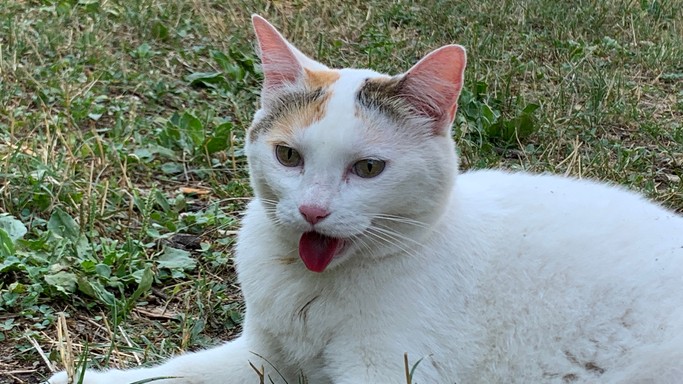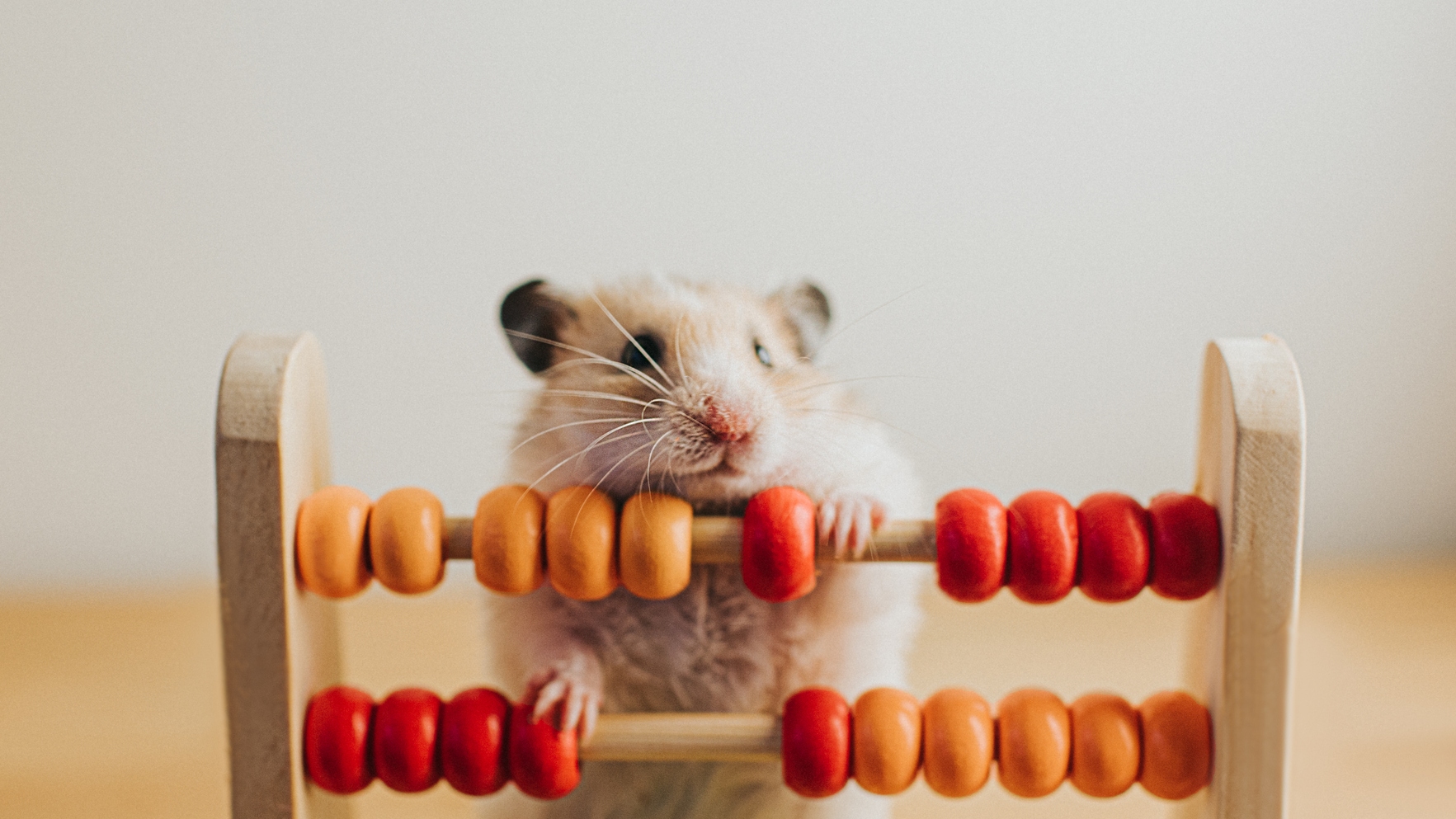Why is my cat drooling?
If you’ve noticed your cat drooling, read on to find out why and how you can help

Get the best advice, tips and top tech for your beloved Pets
You are now subscribed
Your newsletter sign-up was successful
Cat drooling can be caused by many different things. It can be an indication of bad teeth, nausea, a poorly thought-out lick of an irritant substance, or even kidney disease.
Many owners will understandably chalk up a bit of dribbling as being normal for their cat, especially if they dribble whilst they are purring. However, it is important to remember that some of the causes of cat drooling can be serious, especially without prompt treatment. So, what do you need to look out for? And when do you need to take your cat to the vet?
Is it normal for a cat to drool?
Many owners will understandably chalk up a bit of dribbling as being normal for their cat. Many cats will dribble when they are relaxed and content, especially when they are purring, sleeping, or kneading. This can be more pronounced if they are older and missing some teeth, but healthy young cats can dribble too. So, if your cat has always drooled in certain situations and seems happy, healthy, and free from other symptoms, it's likely to be normal.
On the other hand, it is important to remember that some of the causes of cat drooling can be serious, especially without prompt treatment. So, what do you need to look out for? And when do you need to take your cat to the vet?
Dental disease
Dental disease is really common in cats, especially those that are middle-aged or older so it’s important you know how to keep cat teeth clean. Inflammation and infection of the gums and the roots of the teeth can lead to pain and dribbling. If your feline friend is drooling, but you've also noticed them losing weight, dropping food, or pawing at their mouth, it could be that they have bad teeth.
An appointment with your vet will allow them to give your cat a full check over, and if necessary, arrange for a dental procedure. Although any procedure under anaesthetic is a worry, dealing with dental disease as early as possible will reduce the need for any teeth to be removed.
Read more:
Get the best advice, tips and top tech for your beloved Pets
Nausea
If your cat is feeling sick, you may notice them dribbling a lot. Some signs that the drooling might be related to nausea would be eating grass, vomiting, or even diarrhoea. If your cat is still eating and seems well otherwise, they may improve on a bland diet of white fish or chicken. However, if your cat’s not eating, coupled with persistent vomiting, this poses a serious risk of dehydration. Therefore, if they are not eating or if symptoms persist they should see a vet for a check over as they may need anti-nausea medications or some further tests.
Ulcers

There’s no NHS for pets. Veterinary care can be eye-wateringly expensive and most pets will need treatment for an illness or injury at some point in their life. It’s difficult to think about your animals being hurt or unwell, but you need to ask yourself: what would you do if you were faced with a vet bill for hundreds or thousands of pounds?
Cats can also drool because of painful ulcers in their mouth, on their tongue, or even their throat. One of the possible causes of these ulcers is if they have licked or drank an irritant or caustic substance. Many chemicals can cause serious harm if they are ingested, from floor cleaner to paint stripper, and as a rule, if you wouldn't drink it yourself, neither should a cat. These substances can cause ulceration from the mouth down to the stomach, and sometimes even further. If your cat suddenly starts dribbling, seems to be in pain, is vomiting, or is acting unusually and you know that they have had access to a chemical that they shouldn't have, take them to your vet urgently.
Another cause of ulceration in the mouth, particularly on the tongue is kidney disease. As the kidneys fail, toxins build up in the body and damage the tiny blood vessels at the edge of the tongue. If your cat has kidney disease, alongside drooling you might also notice an increase in how much they drink as well as how often they pass urine. You might also notice them looking a little scrawnier than normal due to weight loss. If you suspect that your cat might be showing signs of kidney disease, speak to your vet about arranging a check-up and blood test.
Cat drooling while sleeping
If you notice your cat drooling when sleeping, this is likely an example of normal drooling. Cats, like us, are at their most relaxed when they are asleep, and dribbling can be a normal consequence of relaxation. So, if your cat has always drooled while they are sleeping, you shouldn't need to worry.
Why would a cat suddenly start drooling?
One of the main red flags that would suggest your cat's drooling is a problem is if it's never happened before. As a cat parent, you come to know what is normal for your cat. If you're used to finding wet marks on your lap after a snuggle with your cat, or you're used to quickly shielding your face when your purry cat suddenly shakes their head, you probably have nothing to worry about.
However, if your cat is normally dry-chinned and you don’t remember them dribbling before, It could be a sign that they need to see a veterinarian. Bad teeth and ulcers tend to come on more gradually, so a large amount of drooling all of a sudden might be more likely due to an irritant chemical or nausea. Your veterinarian will hopefully be able to shed some light on the reason after giving them an examination.
So, what should you do if your cat is drooling?
If your cat is drooling, it could be for many reasons. It’s best not to delay seeing a vet for too long as some of the causes can be serious and many are more treatable early on. Check your cat for other signs like weight loss or a change in appetite or thirst. You should also consider whether or not your cat may have had access to a toxin or irritant substance – could you have left the shed door open? Or perhaps you spilled a chemical while doing some DIY?
Finally, watch out for any vomiting, diarrhoea, eating grass, or signs that their mouth is causing them pain. All of these clues will help you and your vet determine what the underlying cause of the drooling might be and give your furry friend the best chance of a full recovery.
Read next about gingivitis in cats
Dr Hannah Godfrey is a small animal vet who graduated from the Royal Veterinary College in 2011 and began work straight away at a busy mixed practice. Initially, she treated all species, but focussed on small animals from 2014. She has a passion for soft tissue surgery, ultrasound, and canine and feline dentistry, having completed additional training in these areas.

